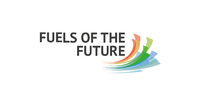International Conference on Renewable Mobility: Deploy all technology options to boost climate change mitigation in the transport sector!
 Berlin, 18.01.2021. On 18th January 2021, kicking off the 18th Conference on Renewable Mobility “Fuels of the Future 2021” – this year in digital format –, speakers from the German Bioenergy Association (BBE), the German Federal Ministry of Transport and Digital Infrastructure, the German automotive industry, as well as from Europe’s largest motoring association, the Allgemeiner Deutscher Automobil-Club e. V. (ADAC) and from the world of science presented their concepts, strategies and research results for renewable mobility of the future and greater climate change mitigation to 520 conference participants.
Berlin, 18.01.2021. On 18th January 2021, kicking off the 18th Conference on Renewable Mobility “Fuels of the Future 2021” – this year in digital format –, speakers from the German Bioenergy Association (BBE), the German Federal Ministry of Transport and Digital Infrastructure, the German automotive industry, as well as from Europe’s largest motoring association, the Allgemeiner Deutscher Automobil-Club e. V. (ADAC) and from the world of science presented their concepts, strategies and research results for renewable mobility of the future and greater climate change mitigation to 520 conference participants.
Artur Auernhammer, Member of the German Bundestag and Chairman of the Board of the German Bioenergy Association (BBE), emphasised in his opening speech that there is no alternative to biofuels when shaping and further developing a sustainable transport and climate protection policy in coming decades. “We therefore expect that sustainable biofuels will be taken into account in an appropriate manner and in a spirit of openness to technological options in the political design of future climate protection policy. Without sustainable biofuels, the level of greenhouse gas emissions per annum in the transport sector would be almost 10 million t CO2-equivalent higher. Since other promising measures such as e-mobility, hydrogen and other electricity-based fuels will only have a tangible effect on climate change mitigation after 2030, sustainable biofuels will be part of the toolbox for climate protection policy in coming decades,” the BBE Chairman underlined.
Steffen Bilger, Parliamentary State Secretary at the Federal Ministry of Transport and Digital Infrastructure (BMVI), addressed the importance of alternative fuels in the Federal Government’s 2030 Climate Change Programme. “The greenhouse gas reduction targets for transport are ambitious and demanding yet feasible. In addition to battery-based electric mobility, renewable fuel options are indispensable in this context, especially hydrogen, e-fuels and also advanced biofuels. In order to ensure progress on market ramp-up of these fuels, an investment surge for development projects and production facilities is crucial. Over the next few years, we shall be supporting this with €1.5 billion funding,” Parliamentary State Secretary Bilger noted.
Hildegard Müller, President of the German Association of the Automobile Industry (VDA), explained the automotive industry’s climate protection priorities for implementation of alternative fuels and drive strategies, ranging from biofuels and e-fuels to the e-car. “During the legislative process, the Bundestag and the federal states should once again significantly increase the targets for the greenhouse gas reduction quota in order to trigger further investment in renewable fuels,” the VDA President urged.
Karsten Schulze, CTO of the Allgemeiner Deutscher Automobil-Club e. V. (ADAC) assessed national and EU biofuel policy in the context of climate change mitigation targets in transport and expressed the following core demand: “If we want to make rapid progress on transport-sector decarbonisation, we need alternative fuels as well as boosting electromobility. That is the only way to involve all car owners in Germany by responding to the realities of their daily lives, thus ensuring that they are on board as we move towards greater climate change mitigation in the transport sector.”
Prof. Dr. Thomas Willner, Hamburg University of Applied Sciences (HAW Hamburg), underlined that tackling the urgent climate protection challenges in the transport sector must involve all available options in a spirit of openness to a range of different technologies. “We need a transparent and technology-neutral climate protection policy that concentrates on genuine physical greenhouse gas reductions across the entire global value chain. The political regulatory framework must ensure that all potential solutions, which must include sustainable alternative fuels, ranging from biofuels or waste-based fuels to electricity-based fuels, can compete freely and fairly on a level playing field in the light of their actual performance. As climate change mitigation is a global challenge, intensive international cooperation in implementation is crucially important,” Prof. Dr. Willner emphasised.
A total of 520 participants accepted the invitation from five associations in the German biofuel industry to find out more about market developments, technological innovations and the future of renewable mobility at the digital-format “Fuels of the Future" international conference from 18th to 22nd January 2021.
The full programme for the 18th International Conference on Renewable Mobility “Fuels of the Future 2021” and registration at: www.fuels-of-the-future.com/en


 Union zur Förderung von Oel- und Proteinpflanzen E.V.
Union zur Förderung von Oel- und Proteinpflanzen E.V.